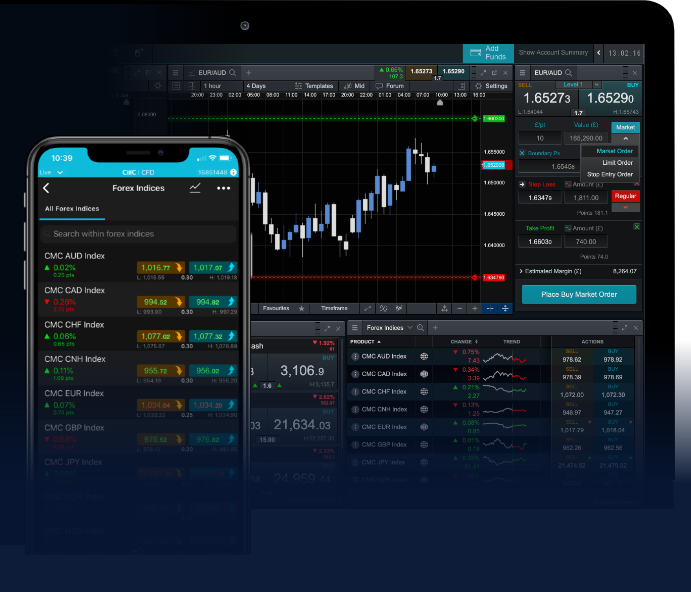
Choosing the Right Trading Platform for Forex Success
In the world of foreign exchange trading, the choice of a trading platform can significantly impact a trader’s success. A reliable and efficient platform can provide traders with the necessary tools and resources to analyze the market, execute trades, and manage their portfolios. To find the ideal platform, one must consider various factors including functionality, user experience, and available tools.trading platform for forex tradingarea-ng.com
Understanding Forex Trading Platforms
A trading platform is a software application that allows traders to buy and sell currency pairs. It acts as a medium between the trader and the forex market, enabling the execution of trades, analysis of price movements, and overall account management. There are different types of trading platforms: web-based, desktop, and mobile applications, each catering to different user preferences.
Types of Forex Trading Platforms
Forex trading platforms can be categorized into two types: proprietary platforms developed by brokers and third-party platforms that are available to traders through various brokers. Understanding their differences will help traders choose the most suitable option.
- Proprietary Platforms: These platforms are developed by forex brokers specifically for their clients. They often come with unique features tailored to the broker’s offerings. Examples include MetaTrader 4 (MT4) and MetaTrader 5 (MT5).
- Third-Party Platforms: These platforms are available independently of the brokers, allowing traders to choose brokers that suit their needs. Examples include TradingView and cTrader. They often offer advanced charting tools and technical analysis features.
Key Features to Look for in a Forex Trading Platform
When selecting a trading platform, certain features can greatly influence the trading experience. Here are some essential features to consider:
- User Interface: A clean and intuitive interface allows traders to navigate the platform easily. An uncomplicated layout is crucial, especially for beginners.
- Charting Tools: Advanced charting tools with customizable indicators allow traders to analyze market trends effectively.
- Order Types: Ensuring the platform supports various order types (market orders, limit orders, stop orders) provides traders with flexibility in executing their strategies.
- Automated Trading: Features such as algorithmic trading and expert advisors enhance trading efficiency, allowing for the automation of trading strategies.
- Security Protocols: A trustworthy platform should employ strong security measures, including encryption and two-factor authentication, to protect traders’ data and funds.
- Access to Educational Resources: Many successful traders start out with educational resources, so access to webinars, tutorials, and articles can be beneficial.

The Importance of Regulatory Compliance
When selecting a trading platform, regulatory compliance is crucial for ensuring the safety of your funds and personal data. Regulatory bodies vary by region, and platforms regulated by reputable authorities offer more security and transparency. Make sure to check whether the trading platform you choose is regulated by entities such as the Financial Conduct Authority (FCA) in the UK, the Commodity Futures Trading Commission (CFTC) in the US, or other recognized regulatory organizations.
Comparing Charges and Fees
Different trading platforms impose various charges, including spreads, commissions, and withdrawal fees. It’s essential to compare these charges as they can significantly affect profitability. A platform with tighter spreads may seem appealing, but other factors such as execution speed and reliability must also be considered. Be sure to read the fine print regarding any lurking fees that could impact your trading experience.
Mobile Trading Capabilities
In today’s fast-paced world, having the ability to trade on the go is more important than ever. A good trading platform should offer a reliable mobile trading app that mirrors the features of its desktop counterpart. This capability allows traders to monitor their positions, analyze market conditions, and execute trades from anywhere. Ensure the mobile interface is user-friendly and compatible with your device for an optimal trading experience.
Customer Support Services
Having access to reliable customer support is vital for any trader, especially when issues arise or if there are questions about platform features. Before selecting a trading platform, assess the customer service provided. Look for platforms that offer various support channels, including live chat, email, and phone support. Additionally, consider the responsiveness and availability of support services when evaluating a platform.
Demo Accounts and Trial Periods
Before committing to a trading platform, it’s wise to utilize a demo account or a trial period, if available. This option allows traders to practice their skills, familiarize themselves with the platform’s features, and develop trading strategies without risking real money. A demo account can provide valuable insights into how the platform operates and whether it meets your trading needs.
Conclusion
Choosing the right trading platform for forex trading is a critical decision that can influence a trader’s success. By understanding the different types of platforms, evaluating essential features, ensuring regulatory compliance, and exploring customer support, traders can make informed decisions. Ultimately, a well-suited trading platform can provide valuable tools and resources that enhance the trading experience and increase the likelihood of profitability. As you embark on your trading journey, take the time to research and identify a platform that aligns with your individual trading goals and preferences.
